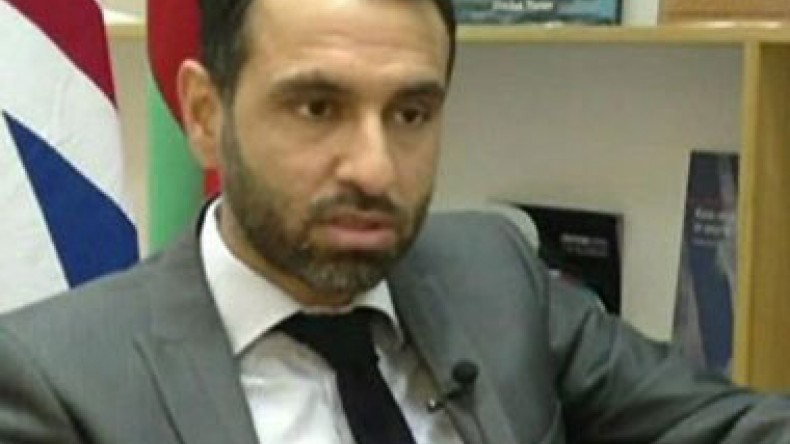
British ambassador to Baku: Fate of Karabakh and Scotland should be decided through referendum not war
“Some residents of Scotland don’t want to be part of Great Britain. Instead of starting a war we will hold a referendum. And the way out with the determination of the future status of Nagorno Karabakh should also be a referendum,” said the British ambassador to Azerbaijan Irfan Siddiq in his speech at Baku university of Khazar. The ambassador’s statement is quoted by Azerbaijani news agency APA.az.
British ambassador noted that referendum is a logical compromise for the determination of a status. He added that in the next 6 months debates on separation of Scotland from Britain will be held.
Azerbaijani news portal Haqqin.az commented on the statement of British ambassador noting that “In fact, British ambassador questions the future of Nagorno Karabakh as a part of Azerbaijan”
Note that after the proclamation of Nagorno Karabakh Republic in September 1991, NKR Council of People’s Deputies decided to hold a referendum on independence. The plebiscite was held on 10 December, 1991 under the incessant shelling of Armenian settlements by Azerbaijani forces. 82.2% out of registered voters took part in it. The majority of those who didn’t take part were the people from the Azerbaijani settlements. Vote ballots were printed in three languages-Armenian, Azerbaijani and Russian. 99.89% voted for independence from Azerbaijan. The results of the referendum, its democratic and transparent nature were confirmed by independent international observers.
The current stage of the Karabakh conflict began in 1988, when the parliament of Autonomous Oblast of Nagorno-Karabakh asked the authorities of the Soviet Union, Armenia and Azerbaijan SSR to pass the region to Armenia.
Azerbaijan responded to the request with protests against the civilians of Armenian nationality. After the collapse of the Soviet Union a full-scale war began. Azerbaijan had an overwhelming advantage in quantity, in weapons and resources and hoped for a quick victory. However, during the brutal war Azerbaijani troops were defeated, losing about 30,000 soldiers and a number of previously controlled areas. After a series of defeats in 1993, Azerbaijani militants stirred up mutiny as a result of which former KGB General Heydar Aliyev, father of incumbent president of Azerbaijan Ilham Aliyev, came to power in the country.
On 5 May 1994, Armenia, NKR and Azerbaijan signed Bishkek protocol, according to which on May 12 1994 the hostilities in the conflict zone were ceased. The agreement on cease-fire regime is observed so far. Since 1992 to the present day negotiations with the OSCE Minsk Group co-chairs United States, Russia and France, are being held for reaching a peaceful settlement of the conflict.
Newsfeed
Videos






























